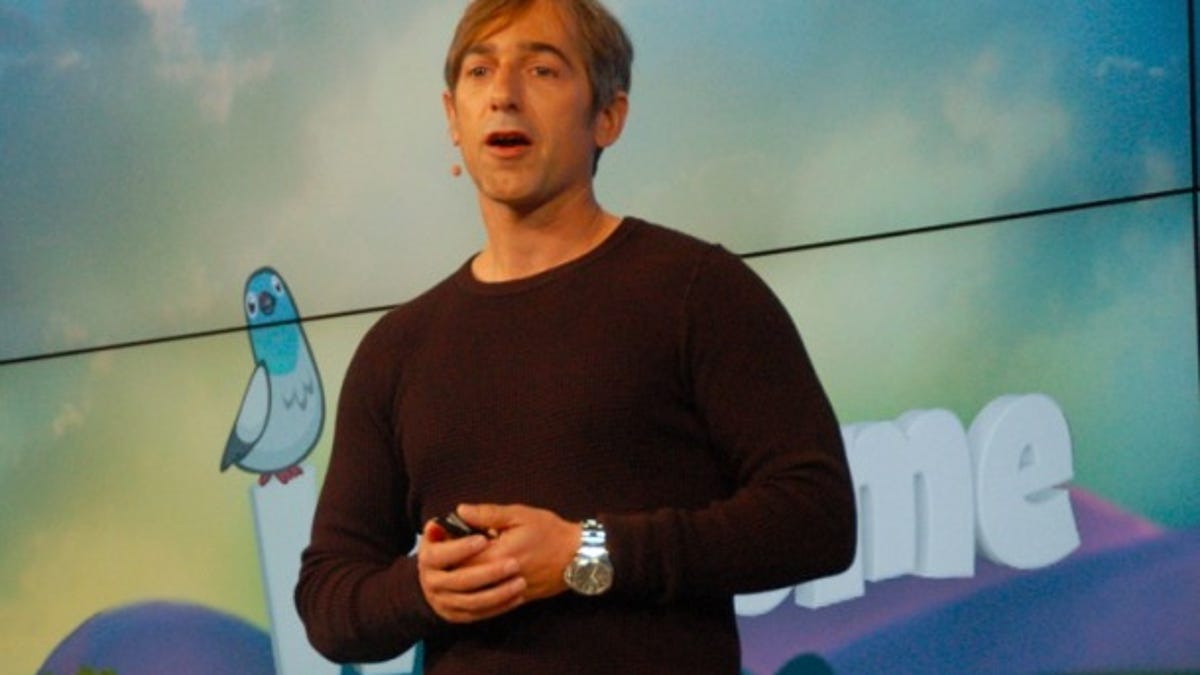Zynga CEO: Mobile is disruptive, but it's the future
CEO Mark Pincus discusses the future of the mobile-gaming ecosystem at the MobileBeat 2012 conference.

SAN FRANCISCO -- Mobile is disruptive, but the most obvious disruptions can be the best opportunities -- at least for online social gaming, according to Zynga founder and CEO Mark Pincus.
During the morning keynote fireside chat at MobileBeat 2012 on Tuesday, Pincus explained his vision of the future of mobile games to GamesBeat lead writer Dean Takahashi.
Essentially, Pincus argued that the industry needs to be more interconnected and there need to be more open channels so that many more games can be discovered -- not just the ones that for whatever reason can get into the Top 10.
"If you're a small, independent developer, you need to know you're not betting your company and you're not going to go out of business if you're wrong," said Pincus.
For the mobile gaming industry, Pincus argued that entrepreneurs need the conditions in which they can confidently make these bigger investments in higher-quality content.
"We think that these platforms are investable at scale," said Pincus.
But he lamented that it feels "very constraining" that there is too much pressure on Top 10 lists and directories.
That's where social networks have come in and really made it possible for online games to go viral in a way that other kinds of mobile apps haven't really achieved yet. Pincus pointed out that learning of games through word of mouth can happen at an incredibly faster rate online than ever before in person, which has really been the big growth factor in social gaming.
But he acknowledged that game developers -- including Zynga -- need a way to remind online players to come back to the games.
"The model we've built on the Web is one that is around games as a service and investing in games over long periods of times as franchises," Pincus explained. "Those accrue much better economics."
In the next 5 to 10 years, Pincus predicted, the small developer that creates a breakthrough game has a real chance for the title to spread virally and leverage all of the traffic already produced by the mobile gaming industry, which in turns move the whole industry forward.
Pincus affirmed that the social-gaming market has moved especially quickly in the last 18 months, noting that Zynga has been "investing and betting on mobile heavily."
"Our approach in building markets is building products -- not marketing," Pincus asserted, explaining that means building out social-gaming mechanics and franchises.
Pincus even projected optimistically that eventually social- and mobile-gaming development will get to the point where TV and movies are.
But before that happens, he said, gaming companies need to have confidence that the technology they pick to develop on is not going to bite back at them.
"We want to isolate this to be more about great design and mechanics rather than whether you picked Adobe AIR or HTML5," Pincus asserted.
This story originally appeared on ZDNet.

